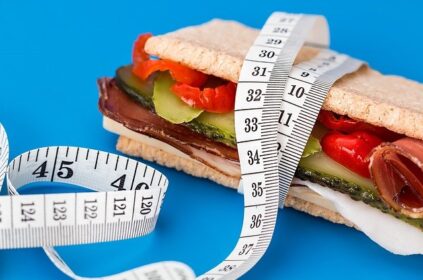Getting proper nutrition is important in maintaining a healthy lifestyle. Unfortunately, with all the delicious temptations out there, it’s hard to maintain healthy eating habits. In addition, most people think that eating healthy requires expensive organic food, detailed calorie counting and sometimes the service of a dietician. If you want to start eating healthy, you don’t need to do all of these things. In fact you can start out with these simple everyday tips on eating healthy.
Start your day right
When they said breakfast is the most important meal of the day, they weren’t exaggerating. Breakfast refuels your body after a night of fasting (break-fast). People think that skipping breakfast will make them thinner. This is false, as it can actually make weight loss more difficult because it slows down the metabolism. Ideally breakfast should contain starchy foods, a serving of fresh fruit or vegetables and lots of fluids.
Eat the right carbs
You might have heard of “carbs” as being the culprit of weight gain. In truth these are the simple carbohydrates found in sweets, baked goods and sodas. Complex carbohydrates or more commonly known as starchy foods are actually good for you in the right amounts. They provide more energy without spiking up your blood sugar. In addition they also contain more fiber and take longer to digest so you won’t feel hungry often. Examples of starchy foods include potatoes, whole grains, and pasta.
Choose more plant sources
Protein is an important part of one’s diet. However many of our protein sources are also high in fats, like milk, ice cream and processed meats. Balancing your diet with plant protein from legumes and vegetables is a good way to cut down on processed meats. If you cannot do without animal protein, choose healthier options such as low-fat milk or milk products, white meat, or lean meat from grass fed cows.
Eat at least five servings of fruits or vegetables
And don’t forget about variety as no single fruit or vegetable contains all the vitamins and minerals we need. A serving may mean a medium-size piece of fruit or a small bowl of vegetables. Fresh fruit juice can be considered a single serving but drink it unsweetened.
Stay adequately hydrated
Drink at least eight glasses of water per day. Drink more if it’s warm or if you’re exercising. Water is needed for the body to flush out toxins and maintain proper metabolism. Furthermore, people who are adequately hydrated do not often feel as hungry as those who do not drink enough fluids.
Opt for unprocessed foods
Processed foods have higher contents of fat, sodium and sugar. In addition, they have lower levels of vitamins and minerals which are usually damaged during processing. When you’re preparing meals don’t forget to serve a fresh fruit or vegetable salad once in a while. Or buy fresh meat for cooking instead of always eating tinned goods or fast foods.
Learn to cook right
A lot of vitamins especially, vitamin C and B12 are destroyed during cooking. To minimize destroying these vitamins don’t overcook meals. Sautéing or steaming foods are some of the best ways to cook without ruining the flavor or the nutrients in foods.







